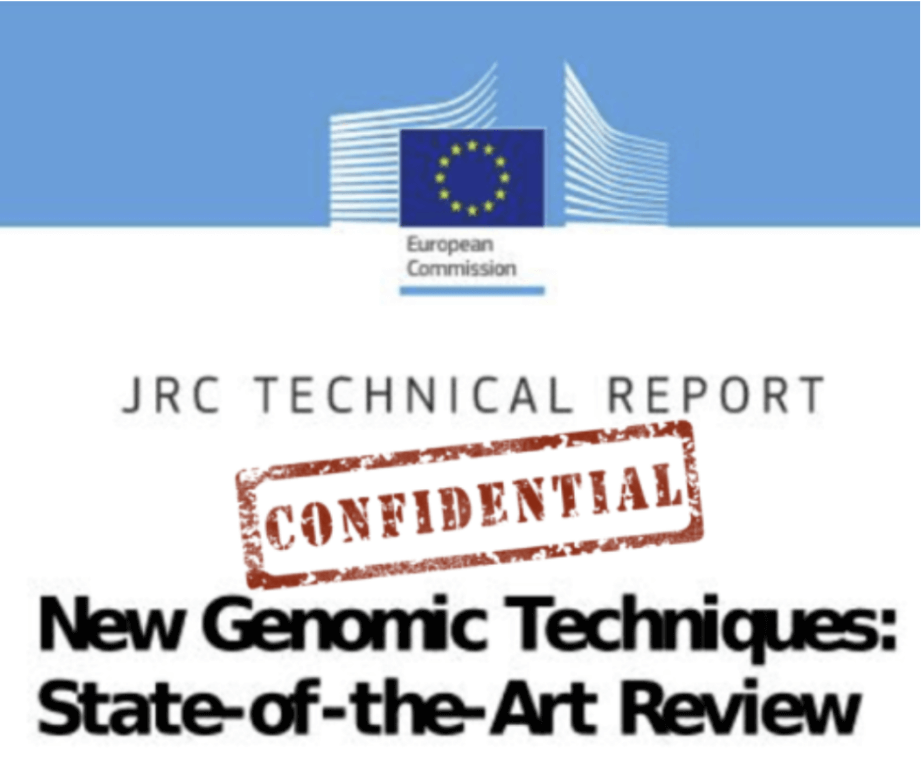Anti-GE activists spin a narrative that large agribusiness companies have seduced farmers into planting GMO crops where it’s legal, such as in Argentina, Australia, the US, Brazil and Canada. Farmers, in their narrative, are either ignorant of the damage they are causing to the soil, too greedy to care, or get trapped in the GMO treadmill after buying patented seeds that they can’t reuse from season to season. In other words, they are portrayed as pawns of greedy agribusinesses and mad scientists conducting a vast scientific experiment without regard to the possible public costs.
Let’s unwrap this stereotype
It’s almost as if these ‘environmental advocates’ have never met a farmer. Every day, they both partner and go to war with mother nature. They have to deal with crop diseases, drought and excessive heat, too much rain and the rollercoaster of commodity prices. That’s not to mention everyday pressures such as buying fertilizer and crop protection chemicals, keeping their tractors running, and buying diesel when the price of fuel bounces up and down like a Super Ball. So much for stress-free planning.
Most farmers see themselves as stewards of the land. After all, if they despoil the soil that supports them, they suffer directly; no amount of chemicals can bail them out. What they are interested in is embracing the latest science and technology breakthroughs, from Big Data to AI. They grow GMO crops not because they are brainwashed or manipulated, but because it is in their best interests. A meta-analysis of 147 studies indicated that growing GMO crops reduces chemical pesticide use by 37%, increases crop yields by 22%, and lifts farm profits by 68%.
The fact that organic farming represents a relatively small portion of the crops grown worldwide is an indication that the vast majority of farmers remain skeptical. In the EU for instance, just 9.1 percent of the farmland area in 2020 was organic. As of 2018 in the US, certified organic products made up just 5.7 percent of all food sold through retail outlets. In Canada, certified organic production accounted for 3.3% of all fruit and vegetables sold in 2021.
In many countries where GM crops are grown, some farmers grow both organic and genetically-engineered fruits, vegetables and grains. That gives them additional markets and diversifies their risk. Unfortunately, as the ‘GMO wars’ escalated over the last decade, many of the groups that claim to represent organic farmers have taken a confrontational stand against genetic engineering. That trend is even worse in Europe.
Leaked EC report
Recently, a copy of the European Commission’s plan to deregulate New Genomic Techniques (NGTs) was leaked to the press, immediately drawing criticism from stalwart organic supporters.
The EU Commission apparently wants to relax the genetic engineering regulations, allowing NGTs to be marketed without labeling or traceability requirements.
The organic establishment in Europe was outraged. “To make our food systems truly sustainable, we need to transition away from input-intensive, short-term fixes, which include the promotion of specific technologies with unproven benefits and potential unintended effects and risks,” said IFOAM Organic Europe’s President Jan Plagge. “Genetic engineering with its currently still empty sustainability promises, and a narrow focus on specific genes or traits, ignores the complexity of interactions in a given agroecosystem. “
Plagge is not alone among organic establishment figures in his vehement rejection of crop genetic innovation. At IFOAM’s General Assembly gathering in Brussels recently, a resolution to require NGTs to be both traceable and labeled — currently not part of the EC’s recommended regulations — was approved 97.66% for to 2.31% against.
What farming techniques most encourage sustainability?
Plagge and the organic movement in developed nations across Europe and North America have embraced the belief that organic farming is more sustainable than genetic-enhanced agriculture. An article in MIT Technology Review — “Sorry, organic farming is actually worse for climate change” — is one of dozens of recent reports and university studies challenging that widely-held belief. It addressed widespread misunderstandings, such as:
Land use:
Organic practices can reduce climate pollution produced directly from farming – which would be fantastic if they didn’t also require more land to produce the same amount of food. Clearing additional grasslands or forests to grow enough food to make up for that difference would release far more greenhouse gas than the practices initially reduce, a new study in Nature Communication finds.
Climate pollution:
[O]rganic farming produces more climate pollution than conventional practices when the additional land required is taken into account. … Researchers at the UK’s Cranfield University took a broad look at the question by analyzing what would happen if all of England and Wales shifted entirely to these practices. The good news is it would cut the direct greenhouse-gas emissions from livestock by 5% and from growing crops by 20% per unit of production. The bad news: it would slash yields by around 40%, forcing hungry Britons to import more food from overseas.
Carbon emissions:
If half the land used to meet that spike in demand was converted from grasslands, which store carbon in plant tissues, roots and soil, it would boost overall greenhouse-gas emissions by 21%. Among other things, organic farming avoids the use of synthetic fertilizers, pesticides, and genetically modified organisms, all of which can boost the amount of crops produced per acre…the bigger problem, for both organic crops and livestock, is that these practices end up requiring a lot more land to produce the same amount of food.
Where do grassroots farmers really stand?
The April 2021 EC report that laid the groundwork for the recent document indicated that farmers in numerous countries were not as antagonistic to GE crops as the organic associations.
Italy: “Italy’s farmers’ associations (Coldiretti, Confagricoltura, and CIA) applauded the [April 2021] findings and stressed how innovative biotechnologies might help preserve and enhance Italy’s biodiversity, while fostering the sustainability and competitiveness of the agriculture sector,” noted a USDA report. “They highlighted how genome editing would allow breeders and researchers to develop more productive, nutritious, and climate-resilient crops, simply accelerating modifications that could happen spontaneously in nature. They called for the implementation of science-based policies that support the techniques and the authorization of field trials.
Netherlands: “The Dutch Farmers Organization (known as the LTO) is pragmatic and in favor of innovative biotechnologies,” a separate USDA analysis found. “The LTO states that farmers want to be less dependent on chemicals and invest in robust agricultural systems, with the DNA of the plant as a basis element. …The Dutch plant breeding and propagation sector is supportive of the use of innovative biotechnologies, and states that the technology must be made available for both large and small companies.”
Sweden: “[T]he Federation of Swedish Farmers (LRF) [has] called for the breeding of new plant varieties to address climate change, and commented that new plant properties should be tested for health and environmental risks regardless of whether or not genetic engineering has been used,” noted the USDA. “The agricultural cooperative Lantmännen, concurs with the statements of LRF. On its website it comments that genetic engineering in plant breeding can positively contribute towards a sustainable society.”
Spain: “One of only one of two countries, the other being Portugal, that grows small amounts of GMO corn in the EU, Spain also bucks the organic consensus, according to the USDA. “The use of agricultural technologies, such as biotechnology or irrigation systems, to improve competitiveness and obtain consistent output levels are positively perceived and defended by a large majority in the farming sector…. Given the country’s variable yields and dependency on imported feed ingredients, it is critical to improve domestic production through the deployment of technology.”
Breaking silos, building bridges
It’s not that organic farming should be abandoned, experts say. Rather, so-called regenerative and agroecological farmers need to choose between remaining an insular group, verging on a cult, or embrace the variety of new technologies promoting sustainable agriculture. According to a recent article by six South American academics in the Journal Frontiers in Bioengineering and Biotechnology:
Historically, the relationship between organic agriculture and biotechnology has been antagonistic. Indeed, a true ideological war has been pursued for years between supporters of organic versus biotechnological agriculture. This antagonism induced many smallholder farmers to believe that there is a complete incompatibility between the two agricultural systems. This struggle resulted in a legal framework for organic farming which prevents farmers from incorporating GMOs into their production systems, even if it would allow for better quality, increased climate-related resilience, and productivity, and even less use of pesticides. As a result, organic farmers view biotechnology as unnatural and opposed to the principles that drive organic agriculture.
In other words, it’s time to break silos and build bridges. Despite the belief on the part of anti-GE advocacy groups and the organic food lobby that GE technology has been foisted on the agriculture sector, many EU farmers including organic advocates, are open to considering new plant breeding technologies. They know that if regulations are not altered to allow their use, EU agriculture will be left in the dust by nations who are embracing agricultural innovation.
NGTs have the potential to contribute to a more sustainable food system as part of the objectives of the European Green Deal and the Farm to Fork Strategy, more and more farmers have come to believe. And that’s apparently the majority view of the European Commission.
Still, politicians in many European countries remain resistant to refocusing on sustainability and end products rather than myopically obsessing about the process. Whether they are a majority or not is not clear, but the leaked EC summary provides some hope. Now we must wait to see how Europe’s ideological chess match between the science community and genetic engineering rejectionists plays out.
Steven E. Cerier is a retired international economist and a frequent contributor to the Genetic Literacy Project.
































